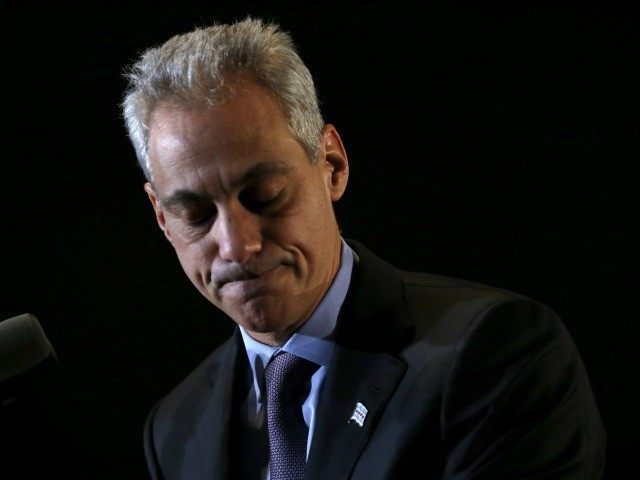Administrators of the Chicago Public Schools were forced to lower the last four years’ graduation rates after admitting they inflated the passing rates and fudged the number of dropouts.
The schools’ Inspector General had raised the alarm over the falsified stats early this year, but the district took no action until October. That was five months after Chicago Mayor Rahm Emanuel won re-election, in part, because he used the false statistics as a campaign issue.
Emanuel repeatedly cited the inflated statistics as evidence the schools were improving. A story in May, for instance, cited Emanuel exclaiming that the higher graduation rates were “shining examples of the promise of Chicago’s future.”
But now the CPS has admitted that those very statistics are false.
Claiming that the new stats are a “relatively minor modification,” recently appointed CPS chief Forrest Claypool reported that only 66.3 percent of its seniors actually graduated, not the 69.4 percent Mayor Emanuel touted during his campaign for re-election earlier this year.
Still, the CPS chief insisted that the correction is no big deal. “The graduation rate has been consistently rising,” Claypool insisted. “This statistical error obviously reduces the rapidity of that rise, but the trend line is exactly the same.”
One of the ways the district inflated graduation rates was to claim students who quit had subsequently enrolled in a GED program, an alternate school or job training program and had also graduated from the Chicago’s schools.
But as the Chicago Sun-Times reported, “a review of CPS’ own records showed at least 2,200 students from 25 Chicago high schools were wrongly counted as ‘transfers’–departing the system for another school district from 2011 to 2014–when they should have been considered ‘dropouts.'”
The CPS also claimed is that its course work is “rigorous.” But a recent investigation by the Illinois Policy Institute shows that the requirements are far less than rigorous.
“Unfortunately, these requirements are not rigorous,” The Institute wrote in June. “In fact, students can fail one of four core classes (English, mathematics, science and social sciences) each year and still advance to the next grade level. They also only have to garner just a D in each class they take to earn the 24 credit hours they need to graduate”
“According to a recent report,” the organization continued, “45 percent of CPS graduates begin their senior year not doing well enough academically to attend a four-year college. In the fall after graduation, the most common outcome for these students was to be neither working nor in school.”
Follow Warner Todd Huston on Twitter @warnerthuston or email the author at igcolonel@hotmail.com

COMMENTS
Please let us know if you're having issues with commenting.